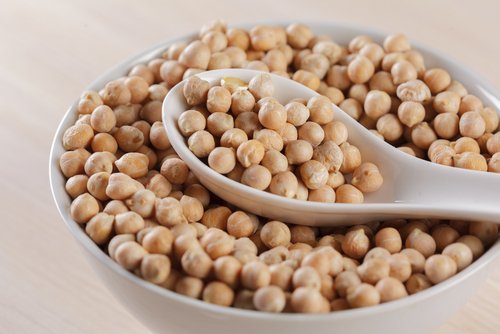Results from a preclinical study at Penn State show that soybean proteins can reduce inflammation and protect the gut barrier in mouse models of inflammatory bowel disease (IBD). These results may support additional clinical studies on the therapeutic use of soy protein in the diet of IBD patients.
The study, “Soy protein concentrate mitigates markers of colonic inflammation and loss of gut barrier function in vitro and in vivo,” was published in The Journal of Nutritional Biochemistry.
Soybeans and their purified proteins have been widely explored and studied as anticancer therapeutics. Although some studies suggested that soy consumption could reduce the risk of colon cancer, researchers have not seen conclusive evidence on the use of purified soy components.
Previous experimental studies have reported that soy proteins can have antioxidant and anti-inflammatory effects. Indeed, replacement of the diet proteins for soy proteins showed promise in reducing IBD symptoms in animal models. However, scientists were not certain how this worked.
Researchers from Pennsylvania State University aimed to unravel the protective mechanisms of soybean protein concentrates (SPC) in both experimental cell lines and animal models of IBD.
Making use of therapeutically relevant doses of SPC, the authors found that SPC did protect cultured human colon cells from oxidative and inflammatory damage, and even death. In addition, by replacing protein diet source by 12 percent with soybean protein concentrates, the researchers observed an overall improvement of IBD symptoms in mice. The animals recovered from IBD-induced weight loss and spleen alterations.
These findings suggest that SPC have antioxidant and tissue-protective effects in human bowel cells, but can also have therapeutic potential by reducing the severity of inflammation due to IBD.
“Soy protein concentrate mitigates markers of colonic inflammation and loss of gut barrier function in the mice with induced IBD,” Amy Wopperer, author of the study, said in a press release.
Of note, they showed that soy proteins’ protective effects may in part rely on the regulation of a specific inflammatory process mediated by immune cells.
Future studies are still needed to understand the real therapeutic benefits of soy proteins for patients with IBD, such as ulcerative colitis and Crohn’s disease. Because soy protein is a readily available food ingredient commonly used as a meat substitute, testing this hypothesis may not be very difficult, the authors believe.

